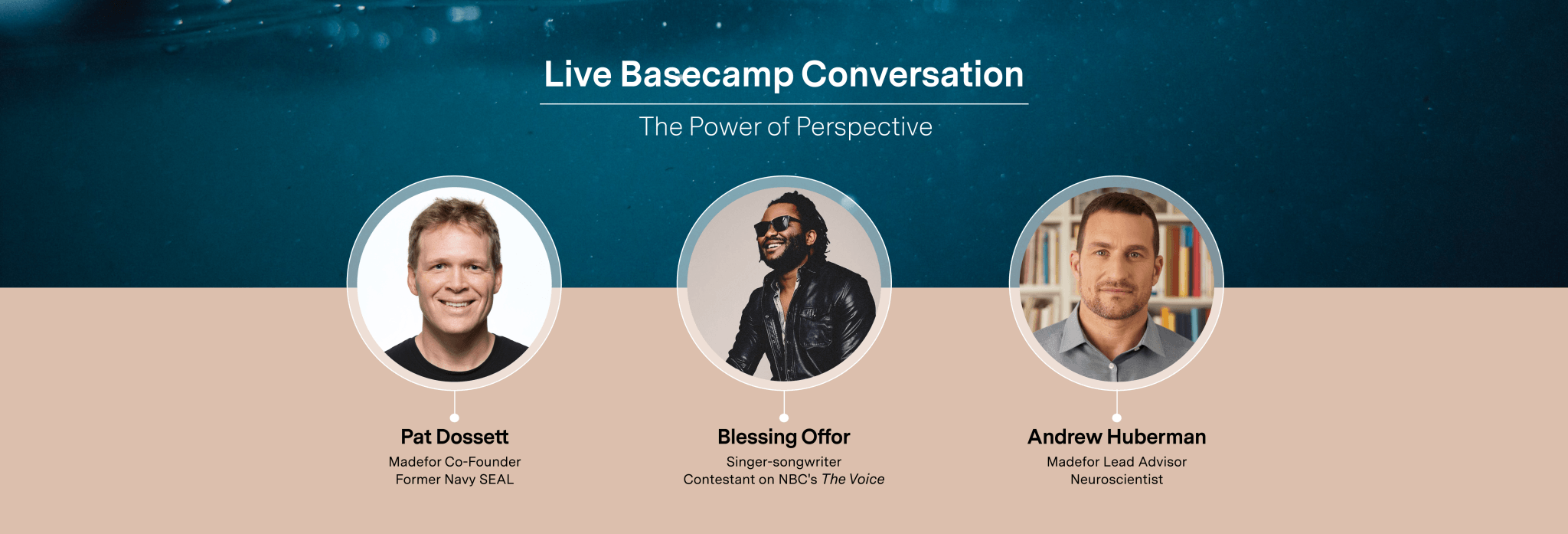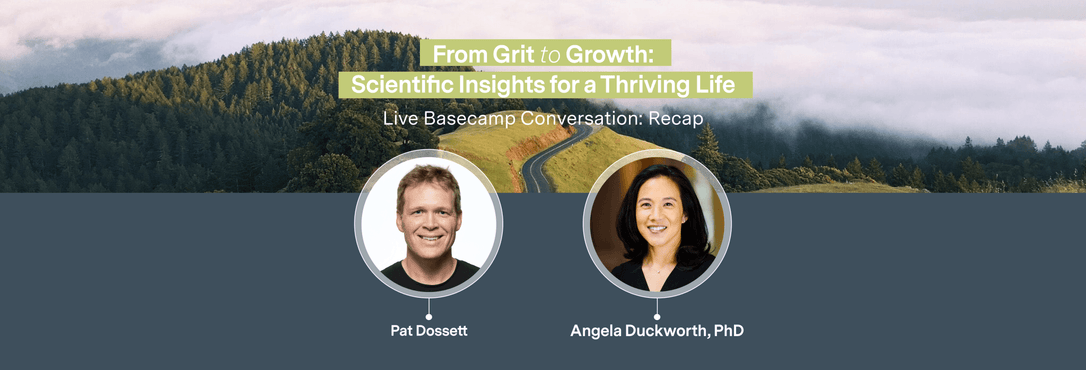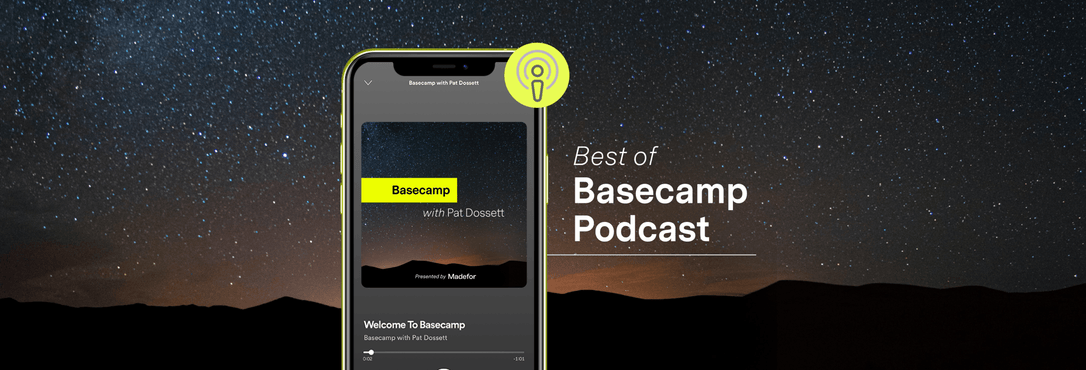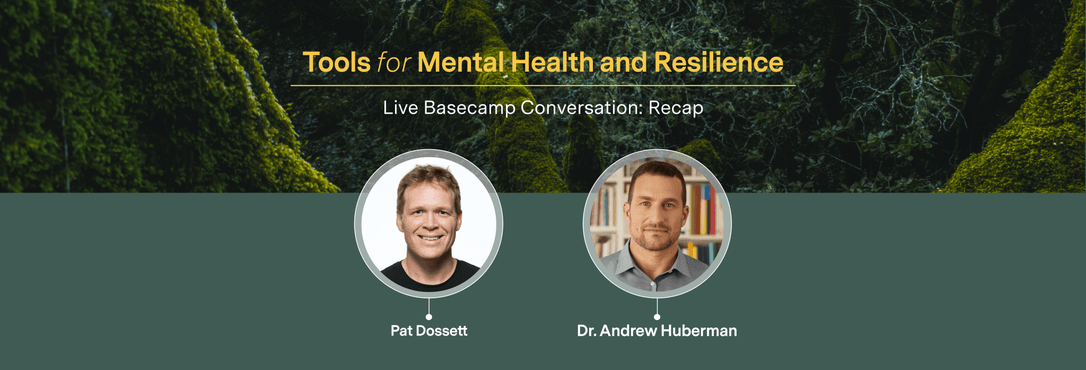The Power of Perspective: A Discussion with Blessing Offor
Life is a choice. If there’s anything Madefor tries to bring into focus through our program, it's that we all make choices that affect our lives and our perspective dictates our success. We went a little deeper on the power of perspective at this month's Basecamp, where Pat and Dr. Huberman spoke with Blessing Offor, a visually impaired singer-songwriter from Nigeria, best known for being a contestant on NBC's The Voice. Blessing shared his story and unique perspective on defining yourself and pursuing one’s passion by focusing on the journey, not the destination.
Blessing’s Life-Affirming Perspective
The youngest of six, Blessing was born with congenital glaucoma. His grandmother noticed it when he was around three years old. Blessing had no vision in one eye and was losing vision in his right. His uncle, a successful soccer player in Nigeria, was moving to the U.S. to play at American colleges and Blessing’s parents decided to send him to the U.S. with his uncle to try to preserve the vision in his right eye. Doctors at Yale were able to save the vision in his right eye, but a freak accident involving a water gun in the fourth grade would cause him to lose most of his vision in his right eye. However, there are no accidents in life. Right around the time Blessing lost full vision, the family had gotten a piano. Always interested in music, Blessing redirected his energy into music and found his passion, purpose, and how to harness perspective to achieve success, and maybe more importantly, joy.
"A disability is when you lose interest in the world, everything else is just a unique experience." -Blessing Offor
While Blessing had many insights and stories, one of the most memorable of the hour was his description of what happened to him during The Voice auditions. The day before auditions at soundcheck, everything went well. Someone who is always over-prepared, he confirmed everything would be exactly the same during the live auditions. However, right before his live audition started, the monitors went out and he couldn’t hear anything. Knowing he couldn't start-and-stop, he made his "Hail Mary" and guessed the key he needed to be in for the song, and did his audition. While he was a little off, unnoticeable to anyone not a musician, he didn’t let the situation stop him and went on to have all four judges vying to work with him.
While the audition is just one of his many experiences, it comes back to Blessing's belief that we all have the power to choose what defines us. For him, his blindness does not. His passion for music defines him. Our "most important thing" is our center and is unique to us. While he acknowledges that it's a cliché, the idea that if you love what you do, you’re not really working, it’s entirely true. For him, the process is also the reward.
The Chemical Currency of Dopamine and the Uniting Effect of the Nervous System
Our sense of self is the totality of who we are; it is the prime real-estate of the brain. As Blessing said, we can choose what defines us. Dopamine, the feel-good hormone, is the chemical currency that helps us decide what feels good or if something is worth pursuing. The chemical currency of joy and well-being has no bias and isn't tethered to any specific sensory function such as what we see or hear. We are wired like this so we can adapt to change in whatever form it may come in. That change can be something as dramatic as losing our vision or something as transitory as where we live or the changes we experience as we age. Dopamine will always tell us what feels good and we can direct our lives accordingly.
As different as we all are, we are all still playing with the same chemicals and cells. We all get feelings of happiness when dopamine floats through the body. We all feel the excitement and rush as adrenaline surges through us. The nervous system takes physical events in the universe and converts them into electricity and chemicals. It's a unifying thing – it's the one place we can absolutely all say that we are playing with the same deck of cards, even if we are playing different card games so to speak. This commonality unites us instead of separates us.
Harnessing the Power of Perspective: Three Things to Think About
Blessing, Pat, and Dr. Huberman all shared one or two major takeaways from this month’s Basecamp that really stuck with them, unsurprisingly, some of these overlapped. Over the next few days, carve out some time to think on and journal on each of these questions:
- What defines me? Throughout the conversation, there’s been a lot of talk about the “most important thing” and how we each define that most important thing for ourselves. For Blessing, it’s his music. For Andrew, it’s his passion for educating others about science. For Pat, it’s his commitment to service. What is the thing that defines you? Why? How do you see it evidenced in your life?
- Am I pursuing my passion a.k.a. my most important thing? Blessing recognizes that the dream is to do the thing you love most as a career, but it's not always possible as it is for him. However, there are many ways to pursue your passion and it may evolve over different points in your life. Pat served in one of the biggest ways you can, he was a Navy SEAL. Even though he is no longer active in the military, he found a new way to pursue his commitment to service in Madefor. Find a place to build from by taking Blessing's advice to, “Find what you love and do it a lot." How can you make more time for your passion? Identify things you can (and will) do to incorporate your passion into a bigger part of your life.
- Do I try to see things from someone else’s perspective? It's easy to think we all "should" react to things the same way, but we are all individuals with different thoughts, feelings, and situations going on in our lives. Many people assume Blessing must think his blindness is tragic, but to him the tragedy would be if he couldn’t pursue music. While they are probably well-meaning, they don’t stop to consider that Blessing defines himself by something other than being without vision. Consider the last great or not-so-great interaction with someone. Did you appreciate their differences or try to put yourself in their shoes? If not, don't beat yourself up. Instead, write down a few ways you can practice kindness at the moment the next time you find yourself in a similar situation.
We've only been able to go into one of these gems in this summary, so we highly recommend watching the recording to go deeper on perspective as well as learn about the limited view of disability, the power of kindness, and how music connects us all.



